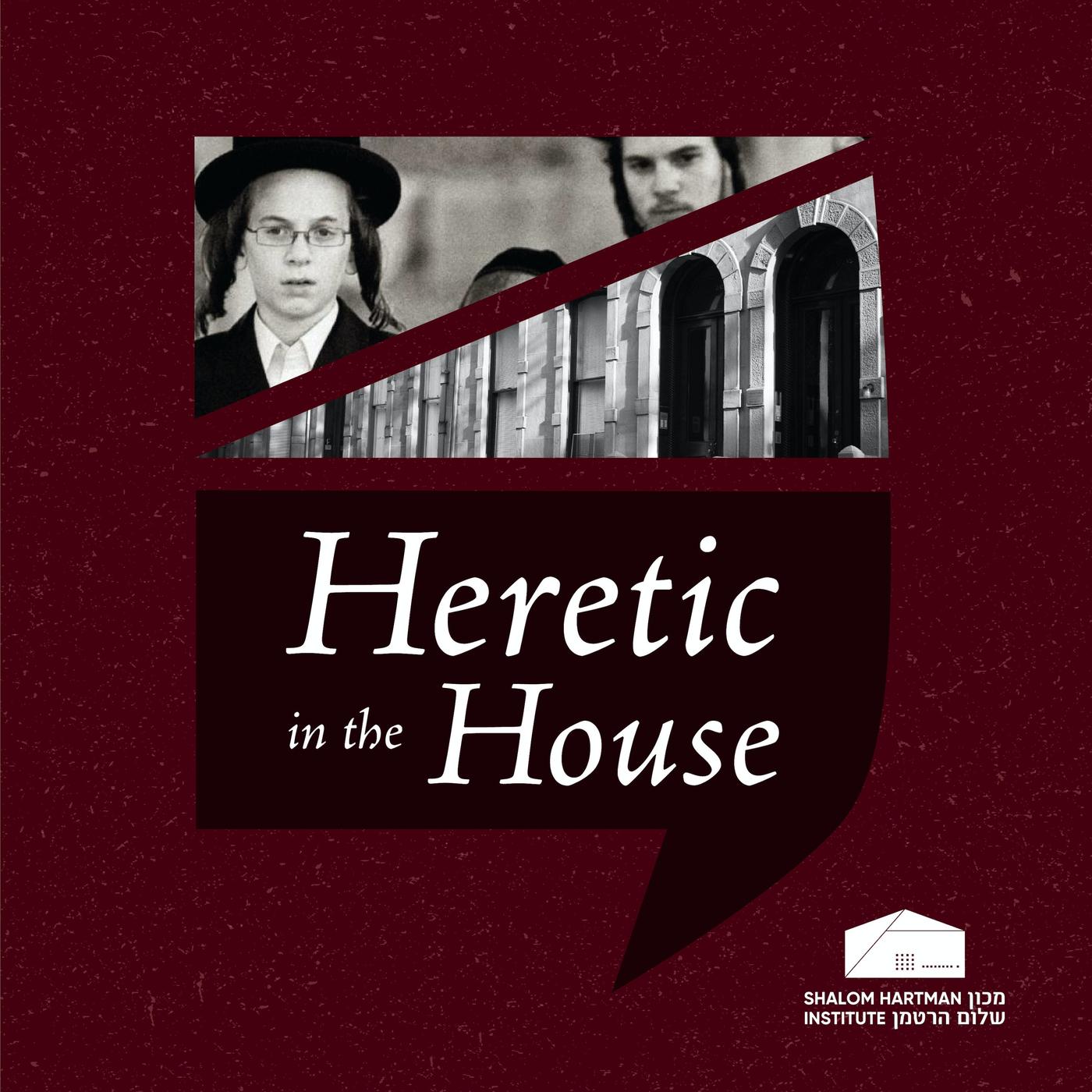
America has a fascination with Hasidic Jews; they show up frequently in memoirs, in newspapers, and even on Netflix. But these popular depictions don’t tell the whole story; they just tell the story the public wants to hear. What they hide is a complicated dance between Orthodox Judaism and those who leave the community, and a web of stereotypes that trap Hassidim, rebels, and the public alike. In this limited four-part series, Professor Naomi Seidman takes us on a deeply moving journey with believers and heretics alike to uncover their hidden stories. Heretic in the House is a podcast from the Shalom Hartman Institute of North America. It's written by Naomi Seidman and produced by M. Louis Gordon. David Zvi Kalman is our senior producer. It is mixed by Cory Choy at Silver Sound NYC with theme music from Luke Allen.
Here's a conversation from a different podcast by the Shalom Hartman Institute called Identity/Crisis, Hosted by Yehuda Kurtzer. In this episode, he interviews Naomi Seidman on the making of Heretic in the House, and some of the ideas behind it.
The crucial moment in so many stories about leaving the Orthodox community is the decision itself, which is frequently portrayed as a painful and heroic act, one that requires tremendous willpower. But leaving rarely works this way; instead, it is a messy and gradual process, one that can leave scars on both the leaver and their community. This episode examines the act of leaving, and whether it is always the leaver who decides that it’s time to go.
Episode Credits:
Written by Naomi Seidman and Produced by M. Louis Gordon. Recorded by Lucien Lozon at MCS Studios Toronto. Mixed by Cory Choy at Silver Sound NYC, with theme music by Luke Allen with special thanks to Alex Dillon. Our Senior Producer is David Zvi Kalman.
Heretic in the House is a podcast from the Shalom Hartman Institute of North America.
Additional links and further reading:
Naomi Seidman, writer and host of this limited series, is a professor of Jewish Studies at the University of Toronto, and a Shalom Hartman Institute Fellow. Her latest book is called Sarah Schenirer and the Bais Yaakov Movement: A Revolution in the Name of Tradition, about the founder of, and the movement for, Orthodox Jewish girls' education in the twentieth century.
The secular world has a narrative about what it means to leave Orthodox Judaism. The Orthodox world has a narrative, too, one that treats those who leave as pitiful people who were dealt a bad hand in life. This story is so deeply ingrained that even those who leave take it with them, whether they want to or not. What does it mean to shed that self-perception?
Episode Credits:
Written by Naomi Seidman and Produced by M. Louis Gordon. Recorded by Lucien Lozon at MCS Studios Toronto. Mixed by Cory Choy at Silver Sound NYC, with theme music by Luke Allen, and special thanks to Alex Dillon. Our Senior Producer is David Zvi Kalman.
Heretic in the House is a podcast from the Shalom Hartman Institute of North America.
If you or someone you know is experiencing thoughts of suicide, you can dial 988, the U.S. national suicide hotline, for help. A list of hotlines in countries outside of the U.S. can be found here.
If you're OTD/ex-Orthodox and you need support, Footsteps is an organization that can connect you with services that may help. You can reach them at footstepsorg.org.
There’s a widespread notion that people who leave Orthodox communities are typically shunned, completely cut off from their families. Even those who leave Orthodox communities believe this. The truth is that it’s not true—but what really happens may not be any less painful.
Episode Credits:
Written by Naomi Seidman and Produced by M. Louis Gordon. Recorded by Lucien Lozon at MCS Studios Toronto. Mixed by Cory Choy at Silver Sound NYC, with theme music by Luke Allen. Our Senior Producer is David Zvi Kalman.
Heretic in the House is a podcast from the Shalom Hartman Institute of North America.
One of the deep ironies of leaving Orthodox Judaism is that people ask you to tell the story of your exit over and over again. Some people who left even make their living telling that story. Why do people who have no connection to Orthodox Judaism find these stories so interesting, and why does telling the story feel false even when it’s completely true?
Episode Credits:
Written by Naomi Seidman and Produced by M. Louis Gordon. Recorded by Francois Heroux and Lucien Lozon at MCS Studios Toronto. Mixed by Cory Choy at Silver Sound NYC, with theme music by Luke Allen. Our Senior Producer is David Zvi Kalman.
Heretic in the House is a podcast from the Shalom Hartman Institute of North America.
You can sign up for Frieda Vizel's walking tours of Hasidic Williamsburg, Brooklyn at friedavizel.com.
Check out the book Degrees of Separation: Identity Formation While Leaving Ultra-Orthodox Judaism, and other work by Zalman Newfield, at his website, zalmannewfield.com